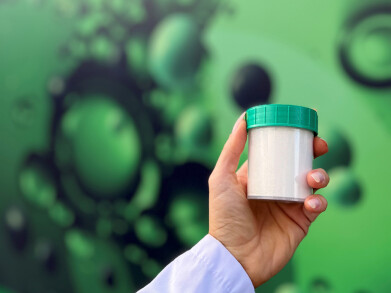Waste management
World’s first biodegradable plastic from CO2 emissions developed in Finland
Oct 15 2024
Fortum Recycling & Waste, a pioneer in waste management and circular solutions in Finland, has made a groundbreaking advancement by producing biodegradable plastic from carbon dioxide (CO2) emissions generated during waste incineration at its Riihimäki plant. This innovative approach, rooted in carbon capture and utilization (CCU), marks a significant stride in reducing and repurposing industrial CO2 emissions.
A Sustainable Innovation in Plastic Production
Tony Rehn, Head of the Carbon2x program, emphasizes the importance of this achievement. "We are proud to be the first in the world to produce biodegradable plastic entirely from carbon dioxide emissions. This innovation represents a critical move toward sustainable plastic production, reducing reliance on fossil-based materials and fostering circular economy initiatives," Rehn stated.
While various carbon capture projects are being explored globally, most focus on synthetic fuel production and carbon capture and storage (CCS). Rehn argues that "utilizing captured CO2 as a raw material is far more sustainable than merely storing it underground or releasing it back into the atmosphere. By promoting carbon capture and utilization, we are addressing future resource scarcity effectively."
The Carbon2x Program: Pioneering Sustainable Solutions
Launched in 2022, Fortum's Carbon2x program aims to capture CO2 emissions from incinerating non-recyclable waste and transform them into sustainable products, including biodegradable plastic. Currently, Europe produces nearly 100 million tons of non-recyclable waste each year, much of which is incinerated for energy. Rehn estimates that implementing the Carbon2x program could allow for the capture of up to 90% of CO2 emissions from this process, effectively transforming waste into valuable resources.
The Benefits of CO2-Based Biodegradable Plastic
Plastic's versatility makes it indispensable in various industries, particularly in food packaging and consumer products. However, there is a pressing need for sustainable alternatives alongside recycled and bio-based plastics. The newly developed CO2-based biodegradable plastic offers comparable quality to traditional fossil-derived plastics while providing a more eco-friendly option.
Rehn highlights, "We are dedicated to advancing material circulation. We believe our innovation will lead to a new category of sustainable plastics, even as mechanical recycling remains essential."
One of the standout features of this biodegradable plastic is its ability to decompose without leaving harmful microplastics in the environment, should it inadvertently end up in nature. Additionally, it can be recycled like many conventional plastics, contributing to a closed carbon cycle.
Future Applications and Market Introduction
The Carbon2x program's innovation is poised to serve multiple industries, including food and cosmetics packaging, toys, and home electronics. Rehn projects that if development continues at this pace, industrial production of biodegradable plastic from waste incineration CO2 emissions could commence by the end of the decade. A new brand featuring “plastics born from CO2” will be launched in the European market in November 2024.
Events
Aug 24 2025 Stockholm, Sweden and online
Aug 27 2025 Busan, South Korea
Sep 02 2025 Mexico City, Mexico
Sep 02 2025 Mexico City, Mexico
Sep 09 2025 Moscow, Russia

.jpg)












